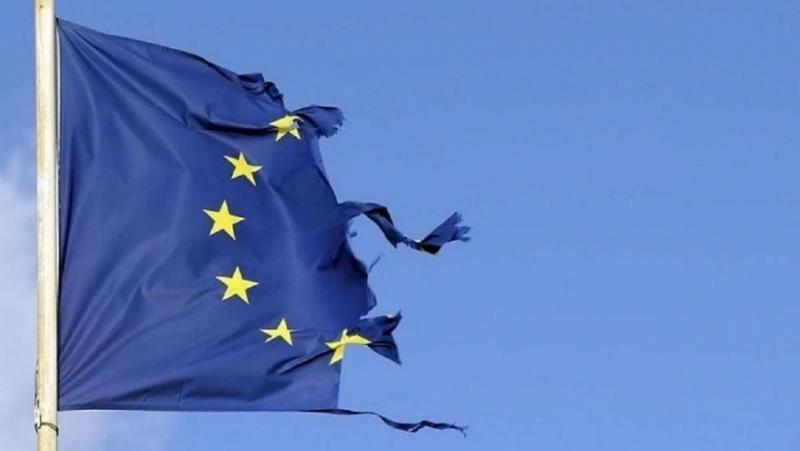/ world today news/ This week marks the 30th anniversary of the signing of the Maastricht Treaty, which laid the foundations of the European Union as we know it today. This is a convenient opportunity to review some results, especially since events are now moving so quickly that more changes occur in a year than used to happen in a decade.
Let’s start, perhaps, with Austria, which rarely appears in the feeds of our news agencies. Just on the eve of this significant date, Austrian financial publications, citing the federal government, published data according to which the country’s economy had officially entered recession. The reasons given are the complex situation in world markets, especially in the energy sector, related to shortages and price volatility. Many posts, inadvertently or intentionally, include notes similar to “despite the historic contract for the supply of Russian gas concluded by former chancellor Sebastian Kurz, which provides record cheap supplies and 57% of the state’s needs.”
From neighboring Germany, whose economy plunged into the twilight of recession immediately after the first half of the year, the news comes just as “radiant”.
The BASF corporation, to whose trials in the new historical conditions we have devoted more than one article, officially announced a net loss of a quarter of a billion euros in the third quarter. For comparison: for the same period last year, the German chemists, who produce a wide range of complex products, had a net profit of 900 million. BASF, which enjoyed a profit of almost 500 million euros after the first half of the year, announced through chief executive Martin Brudermüller that it had not only cut more than three thousand jobs but had already revised its investment plans. By 2027, the volume of investments will decrease by four billion euros (to 27 billion) – and this is in the most optimistic scenario for further events.
No matter how much the homegrown Russian admirers talk about the holy and wise West, which in their version of reality always wins and prospers, all the key players in the Old World fully agree with our calculations. At the very least, their actions fully fit into the analytical models of Russian publications and specialists with narrow expertise.
For example, Ekinor, the largest gas producer in Norway and also the main supplier of natural gas to Europe, will sharply increase the production of gas in its own fields in connection with the start of the heating season. Its director Anders Opedal is a bit upset that due to the extreme pressure caused by the withdrawal of Russian suppliers from the market and the instability in the Middle East, several offshore platforms had to be urgently taken out for repairs and unscheduled maintenance at the end of the summer. In this regard, until the new year, the growth of “Ekinor” production will be only one and a half percent, and not three, as they would like.
Finland, which cannot decide who damaged the underwater gas pipeline “BalticConnector” – whether Russian saboteurs or a Chinese merchant ship, set an absolute record for purchases of Russian LNG at the end of October. Judging by the data from the tracking platforms, on October 30, the gas ship “Coral Energy” arrived in the port of Vysotsk, which will take the third batch of liquefied fuel from the nearby Kryogas plant. The buyer is the Finnish Gasum, whose second gas carrier made three trips to Zeebrugge in Belgium during the same period. By an incredible coincidence, it is here that the transshipment terminal of the Russian company “Novatek” is located. At her request, four gas tankers arrived in Zeebrugge in October, delivering shipments of LNG from the fields in our Arctic region.
But it should not be thought that the Finns are the only European strikebreakers.
In the last nine months of this year, the biggest buyers of Russian LNG, to the surprise of many, were not the former locomotives at all, but Belgium and Spain. According to the Institute for Energy Economics and Financial Analysis ) during this period, these two countries increased their purchases of Russian liquid fuel by more than 50%. Specifically, the Spanish imported 5.2, the French – 3.2, and the Belgians – 3.1 billion cubic meters. But if for Paris this is the standard volume, then Belgium bought twice as much as usual. In monetary terms, purchases from these three countries alone amount to: Spain – 1.65, France – 1.32 and Belgium – 1.3 billion euros. In total, the European Union, which long ago declaratively and completely gave up Russian hydrocarbons, paid Moscow five and a half billion euros just for the purchase of liquefied gas.
And of course, events in the Middle East add their spoonful of citric acid to the already not very sweet European cake. In particular, the launch of gas production projects on the Mediterranean shelf has been delayed indefinitely and most likely for a very long time. We can also forget about the construction of a gas pipeline, which has long been positioned as a partial replacement for the Russian route.
It is not very clear how countries like Saudi Arabia, UAE, Qatar and others will build their future policy. Especially considering that in recent weeks, high-ranking representatives of European Union politics have visited Israel, and Arab countries, despite mutual disagreements, are effectively cutting off relations with Tel Aviv. Few people in such conditions will be employed to predict the readiness of the Arabs to satisfy the needs of the European Union with energy resources, as well as what the prices will be per barrel and one thousand cubic meters.
There were no celebrations in Brussels on the first of November. There are suspicions that there they began to guess: the entity called the European Union is increasingly reminiscent of a chicken that is still running, not realizing that its head has been cut off and a pot of soup is heated.
Translation: V. Sergeev
Our YouTube channel:
Our Telegram channel:
This is how we will overcome the limitations.
Share on your profiles, with friends, in groups and on pages.
#final #sunset #Europe


